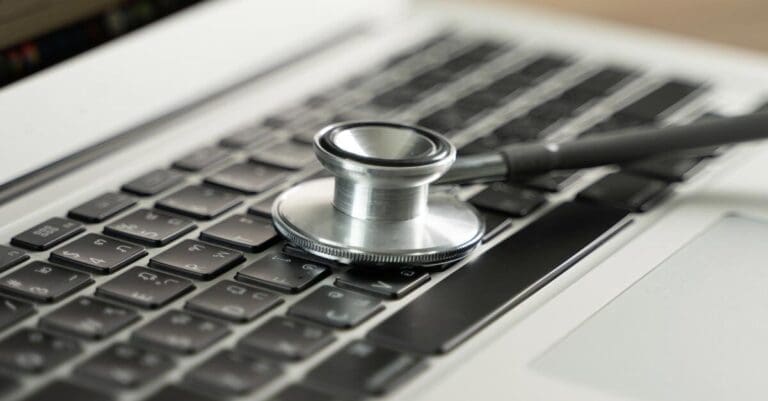
Data breaches in the healthcare industry can have serious consequences for both patients and healthcare providers.
Personal and sensitive information, such as medical records and insurance information, is increasingly at-risk of being accessed and used by unauthorized parties.
This can lead to identity theft, financial fraud, and even harm to a patient’s physical health if their medical information is tampered with.
While it is impractical to think you can be 100% protected, adopting best practices and modern cybersecurity measures can help healthcare providers reduce their chances of a breach.
Increasing Risk of Cyber Attacks & Breaches in Healthcare
Healthcare organizations store a high volume of extremely sensitive data, including information on patients’ health conditions and treatment, their Social Security number, and their financial and billing information.
This makes healthcare organizations a frequent target of cyber-attacks; in fact, the FBI’s Internet Crime Report found that the healthcare industry faced more ransomware attacks than any other critical infrastructure sector.
With the increase in breaches and the amount of medical information growing year-over-year, small mistakes in securing patient data can have significant consequences.
It’s important to have the necessary processes and technologies to protect your organization from breaches.
How to Prevent Data Breaches in Healthcare
The most impactful ways to secure your healthcare data and protect against breaches are upgrading outdated technology, securing mobile devices, implementing security protocols, and using cloud based vendors that are secure.
- Upgrade Outdated Technology and Platforms
- Secure Mobile Devices
- Implement Security Protocols
- Use Secure Cloud-based Vendors
Upgrade Outdated Technology and Platforms
One of the major risks in the healthcare industry is the use of outdated technology and lack of proper security measures. Many healthcare providers still rely on paper records, which can be easily lost or stolen.
Even with the use of electronic health records (EHRs), if proper security protocols are not in place, the information can still be vulnerable to cyberattacks.
Secure Mobile Devices
Another risk is the growing use of mobile devices and cloud storage in healthcare.
As healthcare providers and patients increasingly use smartphones and tablets to access and store medical information, the risk of data breaches increases. If these devices are lost or stolen, or if they are not properly secured, sensitive information can be accessed by unauthorized parties.
Ensure that the highest levels of security are enabled on all mobile devices.
Implement Security Protocols
To prevent data breaches in the healthcare industry, healthcare providers must take a proactive approach to security.
Security Protocols
This includes implementing strict security protocols and regularly updating them to stay ahead of new threats. Healthcare providers should also conduct regular risk assessments to identify potential vulnerabilities in their systems and take steps to address them.
Ensuring your organization is in compliance with HIPAA and HITRUST guidelines is vital, both to protect the security and privacy of your patients and to avoid up to eight-figure fines.
Tightening the security of your business’s data is key to surviving and succeeding in the healthcare industry.
Encryption
Encryption of sensitive data is also an important step in preventing data breaches. By encrypting sensitive information, healthcare providers can ensure that even if a breach does occur, the information will be difficult for unauthorized parties to access and use.
Educating Employees and Patients
One of the most important steps in preventing data breaches is to educate employees and patients about the risks and how to protect sensitive information.
Healthcare providers should provide training to employees on how to identify and report potential breaches, as well as how to properly handle and protect sensitive information.
Patients should also be informed about the risks and how to protect their own personal information.
Use Secure Cloud-based Vendors
The advent of Covid-19 necessitated a fast move to digitization for many healthcare organizations. Many turned to platforms that they may have not been as familiar with or done due diligence on, opening organizations up to breaches via insecure vendors.
Conduct an assessment of your vendors, especially your cloud-based and infrastructure partners, and prioritize them by how critical they are in relation to business function and how well they will protect your sensitive healthcare data.
Protecting your Healthcare Organization’s Data
Given the amount of data that healthcare providers handle, they must not only think of themselves as patient care centers, but also information technology companies – and prioritize data security as such.
To prevent these breaches, healthcare providers must take a proactive approach to security, including implementing strict security protocols, regularly updating them, conducting regular risk assessments, and educating employees and patients about the risks and how to protect sensitive information.
This will not only improve hospital performance, but is also critical in maintaining top-quality care.
Need Help Keeping Your Sensitive Data Secure?
We are technology consulting experts & subject-matter thought leaders who have come together to form a consulting community that delivers unparalleled value to our client partners.




